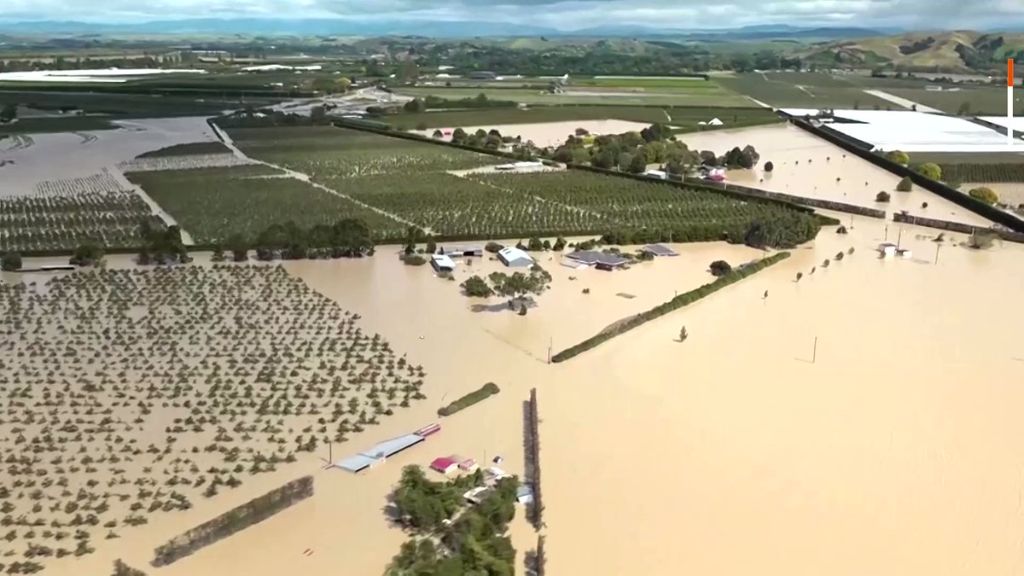Now Reading: Unstable Ground: The Impact of New Zealand’s Climate Policies on Te Puke and the Bay of Plenty
-
01
Unstable Ground: The Impact of New Zealand’s Climate Policies on Te Puke and the Bay of Plenty

Unstable Ground: The Impact of New Zealand’s Climate Policies on Te Puke and the Bay of Plenty
The New Zealand government’s climate change policies, or lack thereof, have significant and varied impacts on New Zealanders, with particular consequences for regions like the Bay of Plenty and communities like Te Puke. While the government’s approach focuses on a “Beneficiary Pays” model, it fails to account for the interconnected nature of climate risks and the specific vulnerabilities of key sectors and regions.
Impact on New Zealanders
The government’s inconsistent stance directly impacts New Zealanders by creating uncertainty and shifting responsibility for climate-related damages onto individuals without providing adequate support or information. The move to end state-funded bailouts for homes in hazard-prone areas means that residents, many of whom bought or built in these areas with official approvals, could face devastating financial losses from extreme weather events. This is especially concerning for low-income populations and rural communities who are often disproportionately affected by climate impacts and have fewer resources to adapt. The emphasis on “informed choice” is hollow when the government itself has cut funding for climate research and has not created a comprehensive, accessible database of hazard information.
Specific Impacts on the Bay of Plenty
The Bay of Plenty is a region with a diverse economy heavily reliant on horticulture, agriculture, and tourism, all of which are highly vulnerable to climate change. The government’s policies, which delay action on agricultural emissions and de-prioritize renewable energy, pose a direct threat to the region’s economic stability and its export markets.
- Exports: New Zealand’s major trading partners, such as the European Union, are increasingly adopting climate-related disclosure and border adjustment mechanisms. By failing to take strong action on emissions, the government is putting Bay of Plenty exporters at a competitive disadvantage. Products from the region, especially those from primary industries, could face tariffs or be excluded from markets due to their carbon footprint.
- Horticulture: Te Puke, known as the “Kiwifruit Capital of the World,” is particularly at risk. Climate change is already causing more frequent and severe weather events like floods and droughts. Kiwifruit, which requires specific climatic conditions, could become uneconomic to grow in the Bay of Plenty in the coming decades under certain climate warming scenarios. This would have a catastrophic effect on the local economy, impacting growers, seasonal workers, and the wider supply chain.
Impact on Te Puke and Local Communities
For residents of Te Puke, the government’s approach creates a tangible sense of insecurity. The community is already facing the realities of climate change, with anecdotal reports of residents in low-lying areas “stressing every time it rains” due to the risk of flooding. The government’s policy of shifting responsibility onto individuals means that residents of Te Puke and other similar communities will be left to fend for themselves, without the necessary resources or data to protect their homes and livelihoods.
- Community Resilience: The focus on individual responsibility overlooks the need for collective action and infrastructure. While community-led initiatives, such as the Māori Climate Platform, are helping to fund resilience projects like solar farms, these are often small-scale and cannot replace comprehensive, government-led adaptation strategies. The decision to cut public transport and cycling infrastructure funding, for instance, affects the ability of people in Te Puke and the wider Bay of Plenty to reduce their personal carbon footprint and creates a greater reliance on private vehicles.
- Local Businesses: Local businesses, from packhouses to cafes, are also at risk. The direct costs of climate damage and the indirect effects of disrupted supply chains and reduced consumer spending due to economic downturns will put significant pressure on these enterprises. The government’s stance, which seems to favor fossil fuel exploration over sustainable development, creates a high-risk future for these local businesses and the people they employ.



















